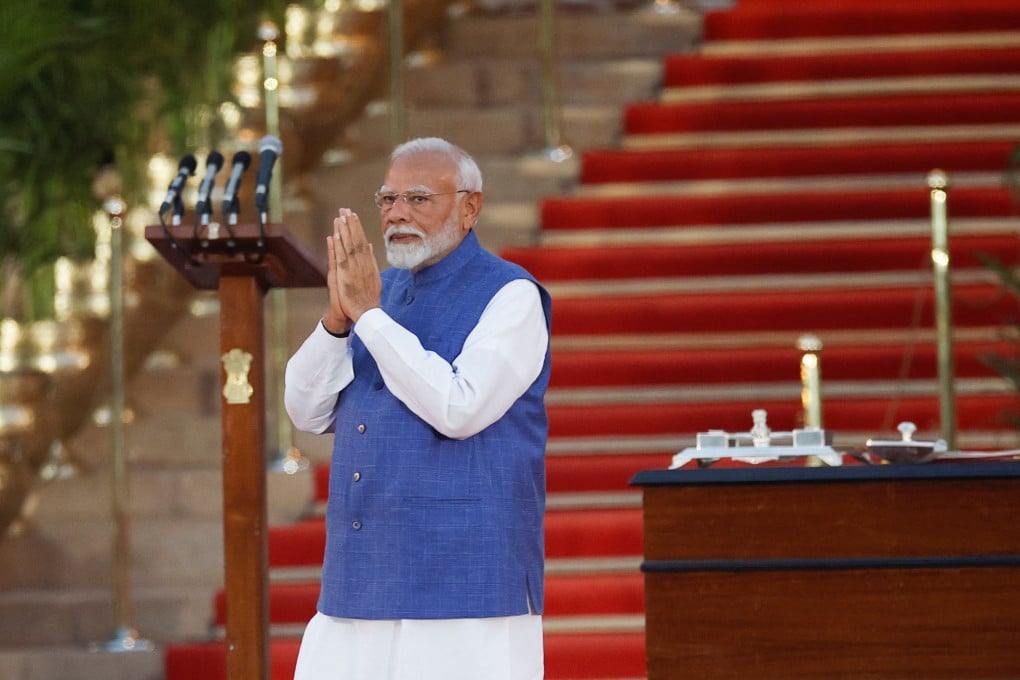Advertisement
My Take | In India, PM Narendra Modi’s new coalition needs all-embracing approach to minorities
- Loss of majority in the election has left Modi’s BJP reliant on coalition allies, which could mean a more consensus-based approach to passing laws
Reading Time:3 minutes
Why you can trust SCMP
1

The marathon election in India, the world’s largest democracy, ended with a surprising reduction in the brute majority of Prime Minister Narendra Modi’s Hindu nationalist Bharatiya Janata Party (BJP), raising hopes for stronger democracy.
The larger question is what it will mean for India’s minorities, including Muslims, Christians and other religious communities.
During a six-week election campaign, ruling party leaders made toxic references, in particular to Muslims.
Confident about securing another outright majority, some leaders even said India would become a Hindu nation. The BJP also handed the first set of citizenship certificates under a new Citizenship Amendment Act – a controversial 2019 law which offers citizenship to non-Muslim migrants from Pakistan, Bangladesh and Afghanistan.
However, halfway through the seven-phased election, Modi denied he was referring to Muslims in an earlier speech in which he had said the opposition Congress party would redistribute people’s wealth to infiltrators and those with more children.
Did the BJP sense it had blundered by overplaying the Hindu card?
Advertisement
